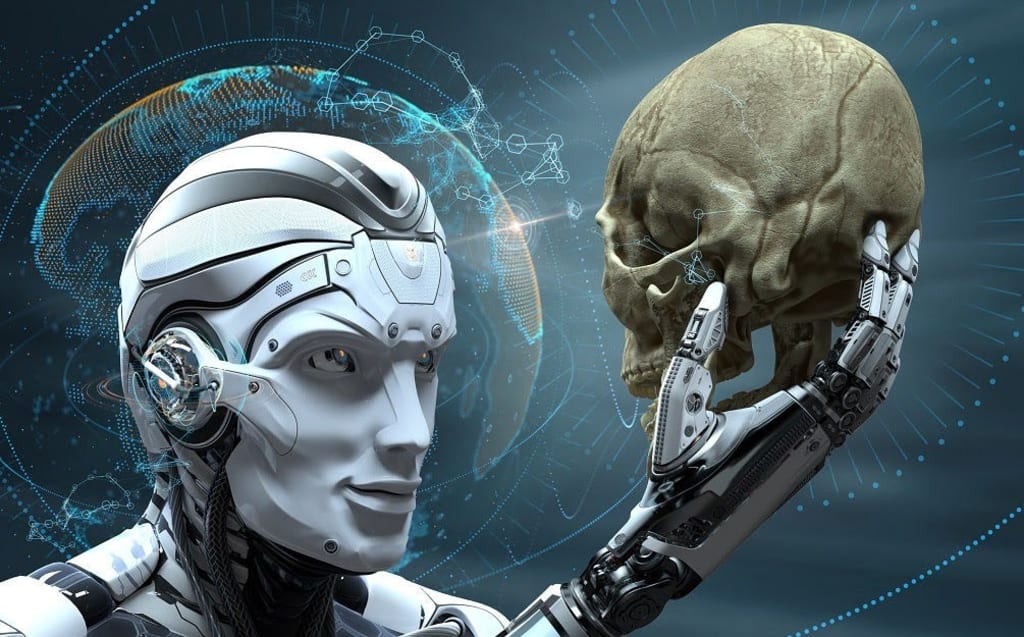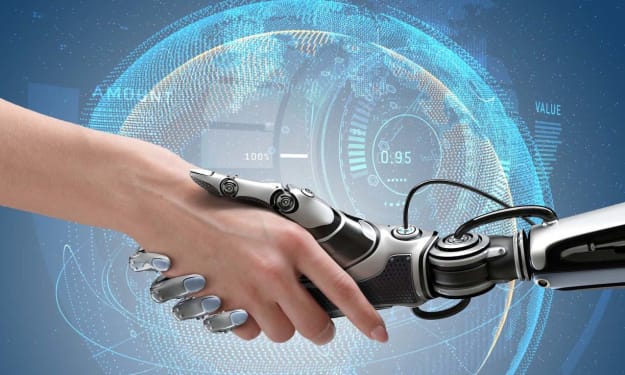The AI Takeover
How Artificial Intelligence Is Reshaping Industries

In the 21st century, the pervasive influence of Artificial Intelligence (AI) is transforming industries at an unprecedented pace. From healthcare to finance, manufacturing to entertainment, AI is reshaping the way businesses operate and deliver value. This article delves into the multifaceted impact of AI on various industries, exploring the innovations, challenges, and the evolving landscape as we navigate the era of the AI takeover.
Healthcare: Revolutionizing Patient Care
In the realm of healthcare, AI is a game-changer. The integration of machine learning algorithms enables predictive analytics, aiding in disease diagnosis and treatment planning. AI algorithms analyze vast datasets, identifying patterns that may elude the human eye. This has led to more accurate and timely diagnoses, ultimately improving patient outcomes. Additionally, robotic surgery, powered by AI, is enhancing precision and reducing recovery times. AI-driven personal health assistants are becoming commonplace, providing personalized health recommendations and facilitating proactive health management.
Finance: Smartening Up the Markets
The financial industry has embraced AI for its ability to process enormous amounts of data and extract meaningful insights. Algorithmic trading, powered by AI, has transformed financial markets, executing trades at speeds and frequencies impossible for human traders. Fraud detection mechanisms leverage AI to identify unusual patterns and swiftly respond to potential threats. AI-driven robo-advisors are also becoming popular, providing personalized financial advice and managing investment portfolios based on individual risk profiles.
Manufacturing: Streamlining Operations
In manufacturing, AI is streamlining operations, optimizing production processes, and enhancing overall efficiency. Smart factories leverage AI for predictive maintenance, reducing downtime and minimizing unexpected equipment failures. AI-powered robotic systems are revolutionizing assembly lines, performing intricate tasks with precision and speed. The integration of AI in supply chain management is optimizing inventory levels, reducing costs, and improving overall logistics.
Education: Personalizing Learning Experiences
The education sector is witnessing a transformation through personalized learning experiences facilitated by AI. Intelligent tutoring systems analyze student performance and tailor learning materials to individual needs, fostering a more effective and engaging educational environment. AI is also being used for automating administrative tasks, allowing educators to focus more on teaching. Virtual reality and AI-driven educational content are creating immersive learning experiences, breaking down traditional barriers in education.
Entertainment: Crafting Personalized Experiences
In the entertainment industry, AI is redefining how content is created and consumed. Recommendation algorithms powered by AI analyze user preferences, providing personalized content suggestions on streaming platforms. AI is also playing a significant role in content creation, from scriptwriting to video editing. Deepfake technology, a controversial application of AI, allows for the manipulation of visual and audio content, raising ethical concerns but also showcasing the potential of AI in creating realistic virtual experiences.
Challenges and Concerns
While the transformative power of AI is undeniable, it comes with a set of challenges and concerns. One of the primary concerns is the potential displacement of jobs as automation takes over routine and repetitive tasks. The ethical implications of AI, particularly in areas like facial recognition, privacy invasion, and bias in algorithms, are subjects of intense debate. Striking a balance between innovation and ethical considerations is crucial to ensuring the responsible development and deployment of AI technologies.
Ethical Considerations: Navigating the AI Landscape Responsibly
As AI continues to evolve, ethical considerations are paramount. The responsible development and deployment of AI technologies require a commitment to transparency, accountability, and fairness. Addressing biases in algorithms, ensuring data privacy, and establishing clear guidelines for AI ethics are essential steps in navigating the AI landscape responsibly. Collaborative efforts between industry stakeholders, policymakers, and the public are crucial in shaping a future where AI benefits society as a whole.
Conclusion: The Future of Industries in the AI Era
The AI takeover is not a distant future but a present reality, reshaping industries across the globe. The transformative power of AI is evident in healthcare, finance, manufacturing, education, and entertainment, bringing about unprecedented efficiency, innovation, and personalized experiences. However, as we embrace the potential of AI, it is imperative to navigate the challenges responsibly, ensuring that the benefits of AI are realized without compromising ethical principles. The future of industries in the AI era is undoubtedly exciting, and as we forge ahead, a thoughtful and ethical approach will be key to unlocking the full potential of artificial intelligence for the betterment of society.






Comments
There are no comments for this story
Be the first to respond and start the conversation.